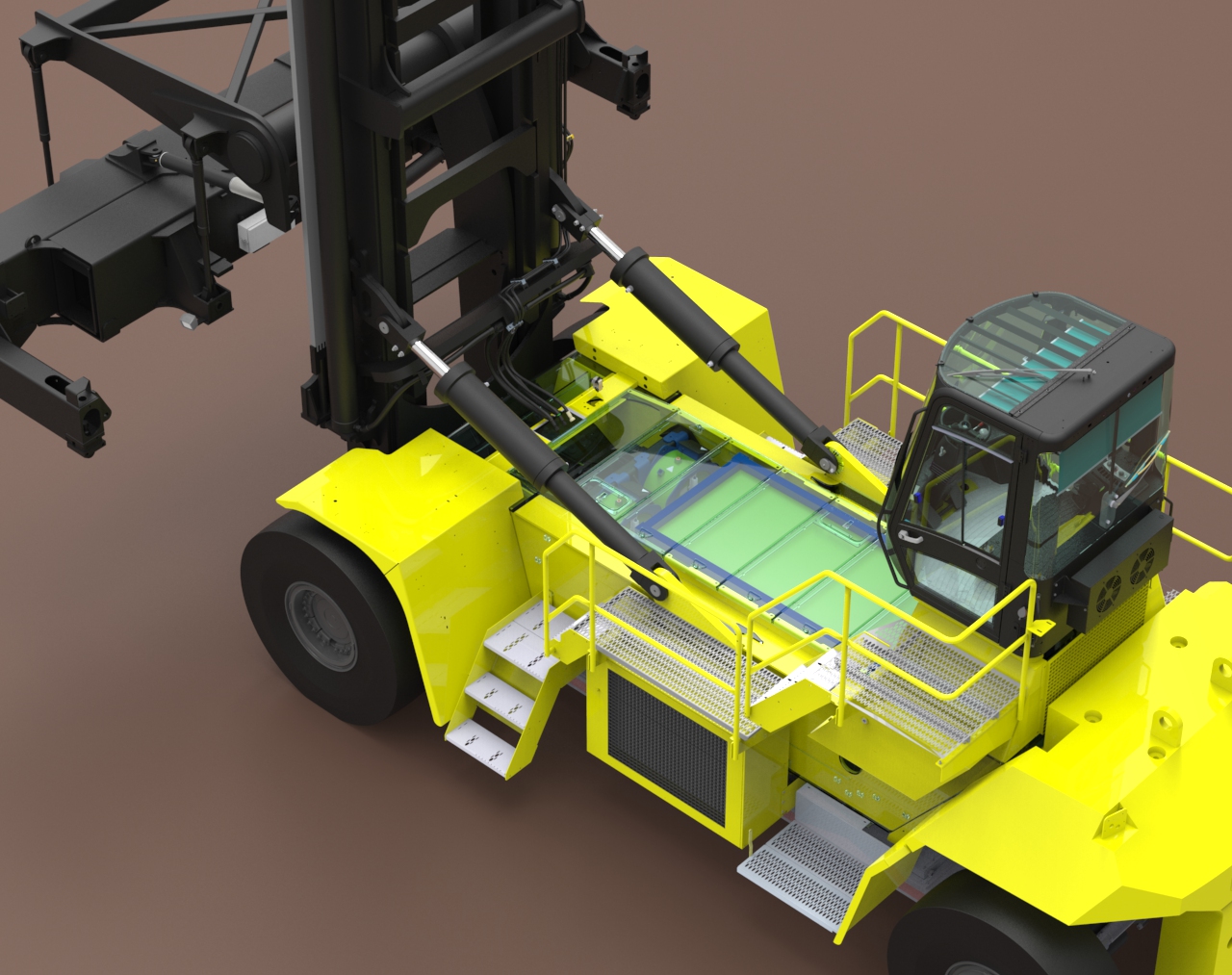
Ahead of the Greenport Congress from 16-19 October, Hyster Company has announced the receipt of a grant from California Climate Investments (CCI) to support the development of a zero-emissions container handling truck powered by a Nuvera® fuel cell.
The funding, awarded by the California Air Resources Board (CARB), part of CCI, the state of California’s climate change-fighting, cap-and-trade program, aims to help Hyster and its partners to develop a zero-emissions container handler for an end-user in the Port of Los Angeles.
The Hyster® electric laden container handler entering development is intended to be powered by a Nuvera® fuel cell combined with a lithium-ion battery. This follows news in 2017 that a Hyster® H1150HD-CH container handling truck with fully electric motors and a large lithium ion battery has entered the test phase.
“The right power option for a truck will always depend on the specific operation,” says Lyndle McCurley, Vice President, Big Truck Sales Americas for Hyster. “Whereas the large lithium ion battery is expected to suit those applications with a medium duty cycle where opportunity charging is possible, we anticipate the truck powered by a battery re-charged by an onboard fuel cell will better suit the challenges of this particular end-user in the Port of L.A.”
The Hyster® zero emissions toploader with a fuel cell and lithium-ion battery has the potential to effectively support applications with higher power consumption and a heavy duty cycle as the truck is expected to operate for a full day before requiring hydrogen re-fuelling. As the truck can also operate for longer before battery re-charging is needed, this also supports operations with irregular break periods, where it may not be practical to plan in battery charging throughout the day.
Hyster aims to offer the fuel cell and battery powered Container Handler with a choice of charging options. The model in development is expected to utilise fully integrated wireless fast charging.
“Hydrogen and grid power provide complementary power solutions for ports,” says McCurley. “Where the requirements to power a fleet of electric Big Trucks is likely to exceed power capabilities of the grid, hydrogen may provide ports with readily available energy without a requirement for a high capacity electric charging infrastructure.”
“Electric charging for a large number of trucks during the day also adds complexity to overall work planning in the terminal, which can be avoided using hydrogen,” he continues, explaining that with hydrogen fuel cell technology, Hyster expects the Big Truck in development to offer ‘clean’ energy with zero emissions, as well as a low cost of ownership and comparable performance to its diesel equivalent.
The new fuel cell-powered truck is also expected to benefit from the patented Hyster® energy recovery systems revealed earlier in 2018 at the TOC Europe event in Rotterdam, the Netherlands. By recovering and storing energy from lowering loads and braking, Hyster® electric container handling trucks are expected to support an extended drive cycle, providing longer operating time before recharge is necessary. The innovative systems aim to increase uptime and profitability for port applications while also helping to reduce energy costs for charging.
Representatives from Hyster will discuss the latest news about the developments around zero emissions electric Big Trucks at the Greenport Congress in Valencia from 16 - 19 October 2018. On Thursday 18 October at 15.10 Willem Nieuwland, Project Leader for Hyster Europe will present the session “Alternative energy sources for mobile plant equipment” as part of the event’s focus on Green Technological R&D.
Hyster will also have an exhibition stand at the event where visitors can find out more about Hyster® solutions for handling from ship to store in ‘green’ port and terminal applications.
To register to attend the Greenport Congress, visit http://www.greenport.com/congress .